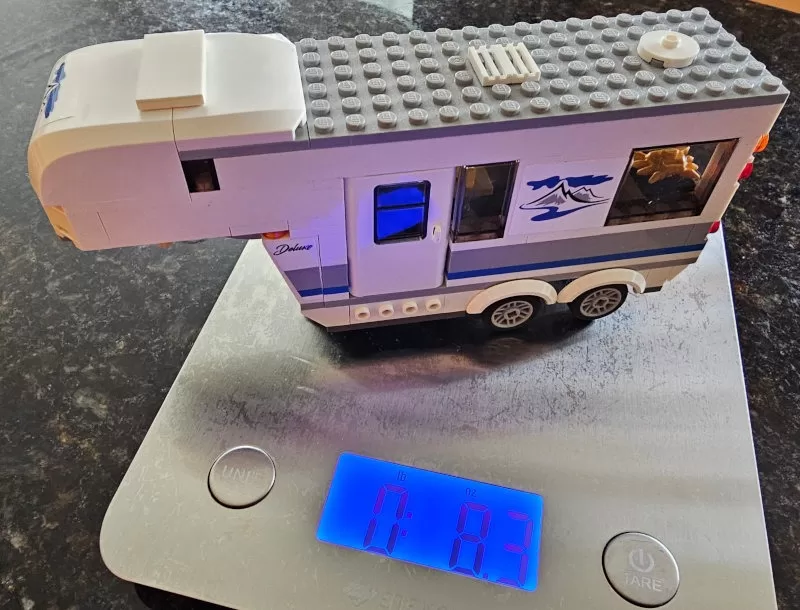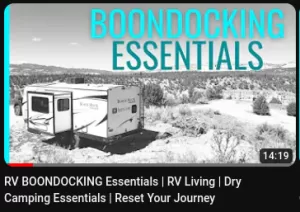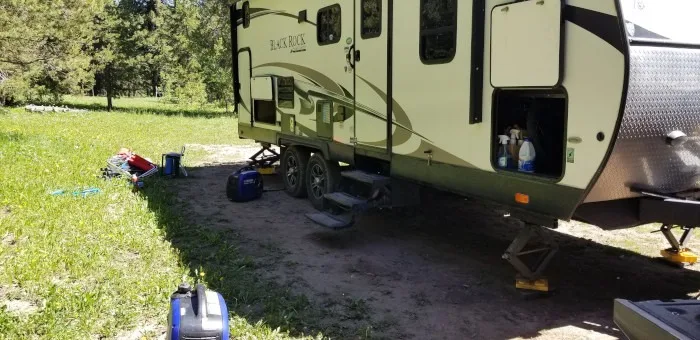Last Updated on 06/20/2024 by Glynn Willard
What Does Dry Weight Mean On A Camper?
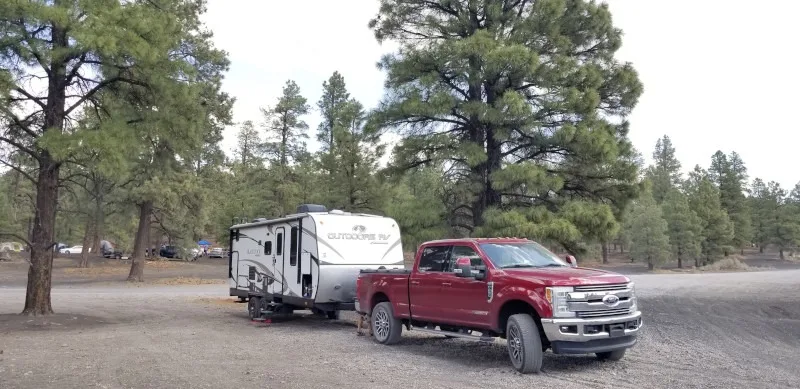
The dry weight of a camper is the RV weight with no cargo, no fluids (including fuel) and no propane.
In other words, it’s the total weight of the trailer or toy hauler before you add anything to it.
Most RV manufacturers list the GVWR (gross vehicle weight rating), the GAWR (gross axle weight rating) and CCC (cargo carrying capacity) on the VIN sticker.
Generally, the dry weight of a camper already includes standard equipment, but not optional equipment or dealer-installed accessories.
Knowing and understanding your RV’s weight and weight ratings is vert important!
Let’s explore what some of these abbreviations stand for and how they apply to the dry weight calculations of your RV.
What Do The Abbreviations Mean

- Gross Vehicle Weight Rating (GVWR):
What does the GVWR mean? We’ve already answered, “What is dry weight on a camper,” so let’s tie it into GVWR.
The gross weight of an RV is the safe maximum allowable weight for the RV, including all the extra weight added by passengers, fluids and cargo.
- Curb Weight:
The curb weight of an RV is the unloaded vehicle weight without gear or passengers.
It’s the weight of the vehicle assigned when it leaves the factory.
- Gross Axle Weight Rating (GAWR):
The GAWR is the maximum weight each axle assembly can safely handle. This includes the rear axle and the front axle.
If there are more than two axles, they’re calculated separately. Keep the rear GAWR of your tow vehicle when calculating the tongue load it can handle.
Just because the tow rating states a high number, doesn’t mean the rear axle can handle a heavy tongue load, gear and passenger weight.
- Cargo Carrying Capacity (CCC):
As far as I’m concerned, the CCC is the most important number you need to know about your RV.
Most RV manufacturers will list the cargo capacity on the VIN sticker or separately somewhere on the RV.
They generally include a number with full water tanks and full fuel tanks and one without.
Your cargo weight (personal belongings), including fluids and yourselves should not exceed this number.
- Gross Combination Weight Rating (GCWR):
This is an important weight when you’re towing a trailer. The GCWR is the maximum weight of the trailer and tow vehicle combined.
The numbers are published by the manufacturer and are very specific to the make, model and gear ratio of each truck.
Pay attention to this number when you’re shopping for specific tow vehicles to tow your trailer.
- Tongue Weight:
The tongue weight of a trailer super important to factor into your tow vehicle’s payload capacity.
A general rule in calculating the tongue weight is 10-15% of a fully loaded trailer’s weight.
It’s often overlooked by new RV owners (travel trailers or 5th wheel).
The only way to obtain accurate numbers for each of these amounts is to have your vehicle and RV weighed separately and together.
You can have this done at a Cat Scale for a fee. It’s worth it if you’re a full-time RVer.
How Much Weight Can You Carry In A Travel Trailer

To figure this out, subtract the dry weight of the camper from the GVWR listed on the VIN sticker.
Recall that you have to account for your water weight if your fresh water tank and water heater are full.
Multiply the combined number of gallons for the fresh water tank and water heater and multiply it by 8.34.
This will give you your total water weight.
Sometimes, living on the road and based on logistics, we found ourselves filling our freshwater tanks before dumping our septic tanks.
We likely exceeded our maximum weight limit during that brief period. It didn’t happen often, but it’s worth mentioning, so you’re aware of the potential.
I realize it’s unrealistic to weigh everything and everyone that goes into your RV, but you can calculate the average weight and come up with an educated guess.
It’s a good place to start.
Some lower-end RVs only have a CCC of around 1100 lbs. You will quickly eat up this number with your possessions, food and water.
Tow Vehicle Payload Capacity
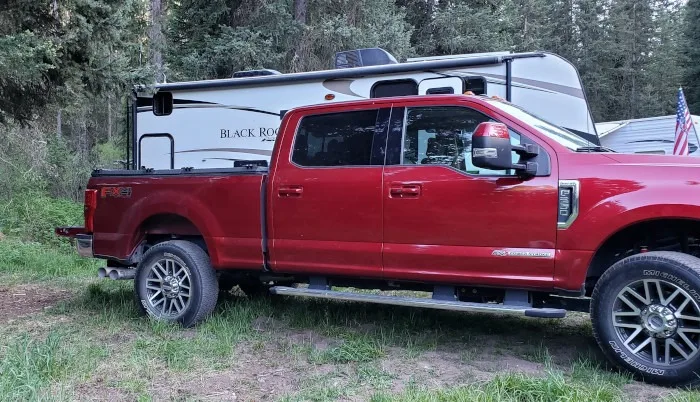
Your tow vehicle has a maximum payload capacity, which must be taken into account when considering the following:
- The hitch weight of the trailer.
- All passengers.
- Fuel
- All cargo in the cab and truck bed.
All of those weights need to be considered when calculating max towing capacity.
We towed with a diesel Ford F 250 and wish we had purchased an F 350 since our engine was heavy and the tongue weight of the trailer was 900 lbs.
If you’re towing a fifth wheel, you will likely need a one-ton truck for safety. Especially if you’re full-time with a lot of gear.
Motorhome Weights To Understand
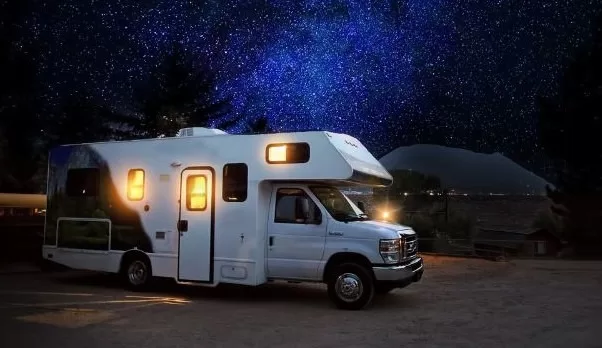
If you have a motorhome, your cargo-carrying capacity will be lower if you have a rear single axle and higher for a dual axle.
Generally, motorhomes have a higher CCC than trailers. Although toy haulers have a much higher CCC to accommodate motorized toys.
Again, the same thing applies to motorhomes as towable trailers.
The total weight of the RV minus the dry weight of an RV will yield the maximum amount of weight you can load into the RV.
If you’re interested in carrying a lot of weight in a motorhome, consider buying a Super C.
They have high cargo-carrying capacity, large water tanks and a tow package that can drag a trailer or towed vehicle behind them.
Super C’s also come with a hefty price tag!
Cargo Weight That Needs To Be Accounted For
I mentioned this earlier, but don’t forget to incorporate the following weights into your cargo-carrying capacity (full weights for tanks) when calculating the trailer or vehicle’s max (maximum load).
- Freshwater tank.
- Water heater.
- Propane tanks.
- Additional solar panels.
- Upgraded electronic equipment (charge controller, inverter and wiring).
- Extra batteries
- Tools
- Installed communication equipment (weBoost, Peplink routers, wifi antennas and wiring).
It’s amazing how fast you can blow past the GVWR of the trailer in most bumper pull trailers.
Tips For Staying Under Your Gross Trailer Weight
Pay close attention to these tips and you should be able to stay under your RV’s GVWR.
- One of the easiest ways to minimize the weight in an RV is to be conscious of everything in which you load into the RV.
- Everything that goes into your rig should serve more than one purpose.
- If an object is made of plastic or metal, choose plastic to save weight.
- Dishes weigh a lot, so search for lightweight dishes and utensils.
- Only pack the clothing you need. Remember, it’s easy to pick things up on the road.
- Choose fabric and plastic organizers over heavier metal organizers.
- Distribute your weight inside the RV evenly between the axles of the motorhome or between the tow vehicle’s hitch and the axles.
Why is it so important to stay under your RV’s GVWR?
The vehicle manufacturer engineers the RV/tow vehicle to handle a specific amount of weight.
The tires, wheels, axles, suspension and frame are all factored into this equation.
Exceeding the GVWR for any vehicle can cause damage or failure of the weakest link in the chain.
I bet you can guess what this is!
Yes, the tires are generally the first to go on an over weighted RV. Especially if they are underinflated, improperly rated or old.
If you are in an accident or cause damage to another vehicle and your trailer is overloaded, your insurance company may not support you.
The chances are likely slim for this to happen.
But, more importantly, for the safety of you, your family and other drivers, stay under your GVWR.
So, always ask yourself, “do I really need this additional weight?”
Not Sure What You Need For Your RV?
Oh, and let’s stay under your GVWR!
Wrapping Up Dry Weight On A Camper
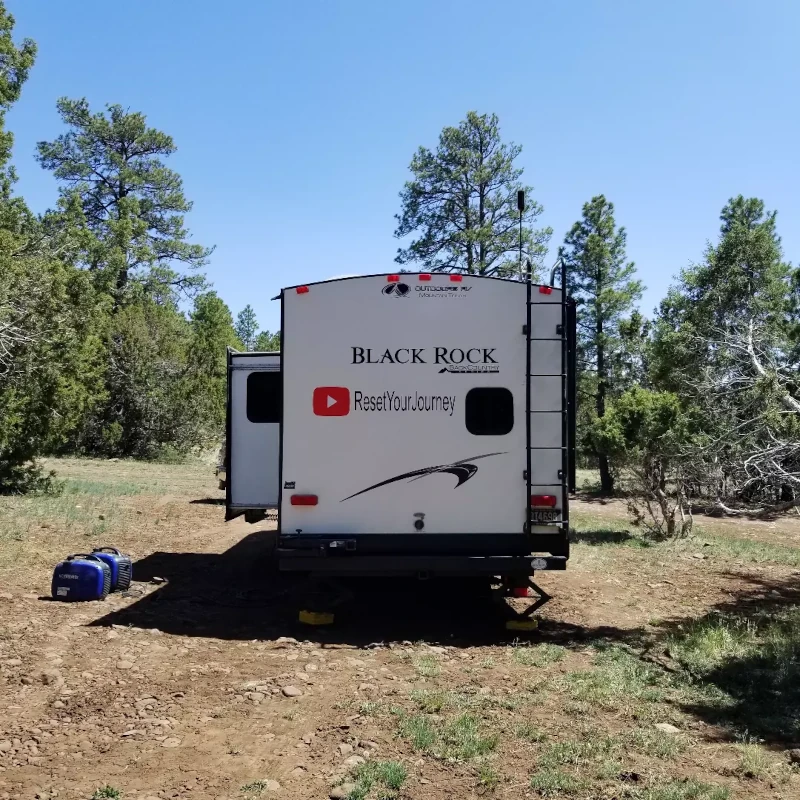
Clearly, there’s a lot to know about the weight of your RV and safe operation.
The biggest takeaways are:
- Know your cargo-carrying capacity.
- If you tow, be aware of your tongue weight and tow vehicle payload capacity.
- Remember to factor fluids into the CCC.
- Avoid over packing your RV.
Have you had your RV weighed to determine it’s dry weight, CCC and GVWR?
Meet the author.
We appreciate any help we can get to bring you great content. Donate or buy us a coffee on our Ko-Fi site.


